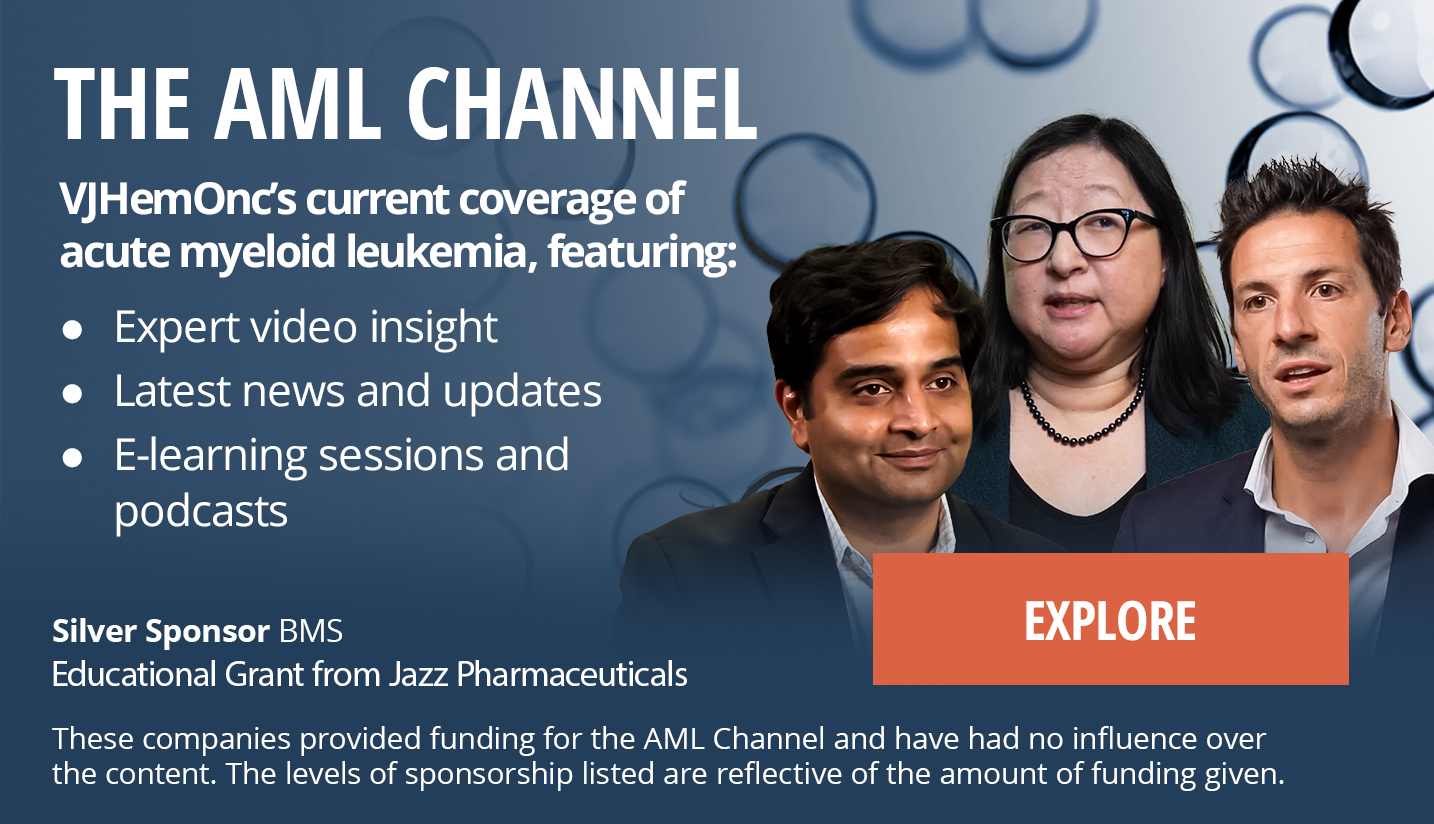Dietger Niederwieser, MD, from the University of Leipzig, Leipzig, Germany, discusses the results of the German acute myeloid leukemia (AML) intergroup study at the American Society of Hematology (ASH) Congress 2016 in San Diego, CA (NCT01414231, NCT01497002). He explains that the study compared different kinds of treatments in AML patients over 60 years of age, where typically a poor outcome is seen. 1200 patients were randomized to receive a common standard arm 3+7 treatment, or a study specific treatment in different studies. No difference between arms was found in complete remission (CR), overall survival (OS), or relapse-free survival (RFS). Different treatment arms included intensive and less intensive arms, as well as a standard 3+7 regiment. Prof. Niederwieser argues that there was no advantage in using a higher drug dose, and that the 3+7 can be continued, but alternatives and new concepts are needed in AML.












